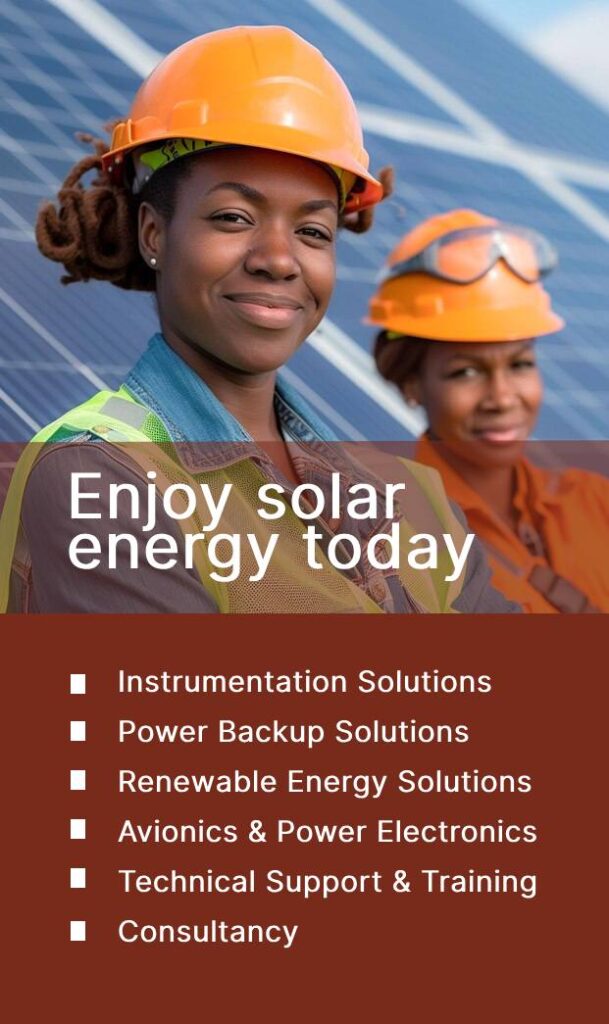As solar energy continues to gain momentum, businesses are increasingly looking for reliable power solutions to meet their energy needs. One of the most critical components in a solar power system is the battery. The right battery ensures that your solar-powered business can run efficiently, even during periods of low sunlight or high demand.
At Rubby Instruments Nigeria, we specialize in providing top-notch power electronics solutions, including solar panels, inverters, and, of course, batteries. Representing world-renowned brands like IREM Spa (Italy) and DELTA Electric (Turkey), we bring quality and reliability to the Nigerian market. In this blog, we’ll explore the best batteries for your solar-powered business to help you make informed decisions.
Why the Right Battery Matters
The battery is the heart of your solar energy storage system. It allows you to store excess energy generated during peak sunlight hours and use it when production is low, such as during the night or on cloudy days. Choosing the wrong battery can lead to inefficiencies, reduced lifespan, or, worse, the failure of your entire solar system.
Types of Batteries for Solar-Powered Businesses
- Lead-Acid Batteries
Lead-acid batteries are one of the most common and cost-effective options for solar energy storage. They come in two main types: flooded and sealed (AGM and Gel). These batteries are tried and tested, offering a balance between price and performance. However, they require regular maintenance and have a shorter lifespan compared to newer technologies.Pros:- Affordable
- Readily available
- Reliable for small to medium-sized businesses
- Requires maintenance (flooded type)
- Shorter lifespan
- Heavy and bulky
- Lithium-Ion Batteries
Lithium-ion batteries have become increasingly popular due to their high energy density, long lifespan, and low maintenance requirements. These batteries are lightweight and can store more energy in a smaller space, making them ideal for businesses with high energy demands and limited space.Pros:- Longer lifespan (up to 10 years or more)
- Higher efficiency
- Compact and lightweight
- Minimal maintenance
- Higher upfront cost
- Sensitive to extreme temperatures
- Nickel-Iron (NiFe) Batteries
Nickel-Iron batteries are known for their durability and longevity, often lasting up to 20 years or more. They are highly resistant to overcharging, making them suitable for businesses in remote or off-grid locations where power reliability is crucial.Pros:- Extremely long lifespan
- Resistant to harsh conditions
- Low environmental impact
- High cost
- Lower efficiency compared to lithium-ion
- Flow Batteries
Flow batteries are an emerging technology designed for large-scale energy storage. They store energy in liquid electrolytes contained within external tanks, which allows for scalability. While still relatively new, these batteries are ideal for businesses with high energy storage needs over longer durations.Pros:- Scalable storage capacity
- Long lifespan
- Minimal degradation over time
- Expensive upfront cost
- Large and bulky, requiring significant space
Key Factors to Consider When Choosing a Battery
- Capacity and Power Output: Ensure that the battery you choose can handle the power demands of your business. This is typically measured in kilowatt-hours (kWh).
- Lifespan and Warranty: The longevity of a battery is a critical factor. Lithium-ion batteries generally have a longer lifespan than lead-acid batteries, but they come at a higher initial cost.
- Efficiency: Higher efficiency means that less energy is lost when charging and discharging the battery. Lithium-ion batteries usually have a higher efficiency compared to lead-acid options.
- Maintenance: Some batteries require regular maintenance, such as flooded lead-acid batteries. If your business cannot afford downtime or frequent maintenance, consider low-maintenance options like lithium-ion or sealed AGM batteries.
- Cost: While cost is an important factor, it’s essential to weigh the upfront cost against the total cost of ownership. A more expensive battery with a longer lifespan and lower maintenance costs may save you money in the long run.
Our Recommendations
For businesses looking to power their operations efficiently, we recommend:
- Lithium-Ion Batteries for those who can afford a higher initial investment and require a compact, efficient, and low-maintenance solution.
- Sealed Lead-Acid Batteries (AGM or Gel) for businesses with smaller budgets that still need reliable power without regular maintenance.
- Nickel-Iron Batteries for businesses in remote areas or industries like agriculture, where durability and longevity are paramount.
Conclusion
Choosing the right battery for your solar-powered business is crucial for optimizing your energy use, reducing costs, and ensuring reliable power. At Rubby Instruments Nigeria, we provide a wide range of batteries, from cost-effective lead-acid to high-performance lithium-ion solutions, tailored to meet the unique needs of your business.
Contact us today to learn more about how we can help you select the best battery to power your solar energy system and keep your business running smoothly.



